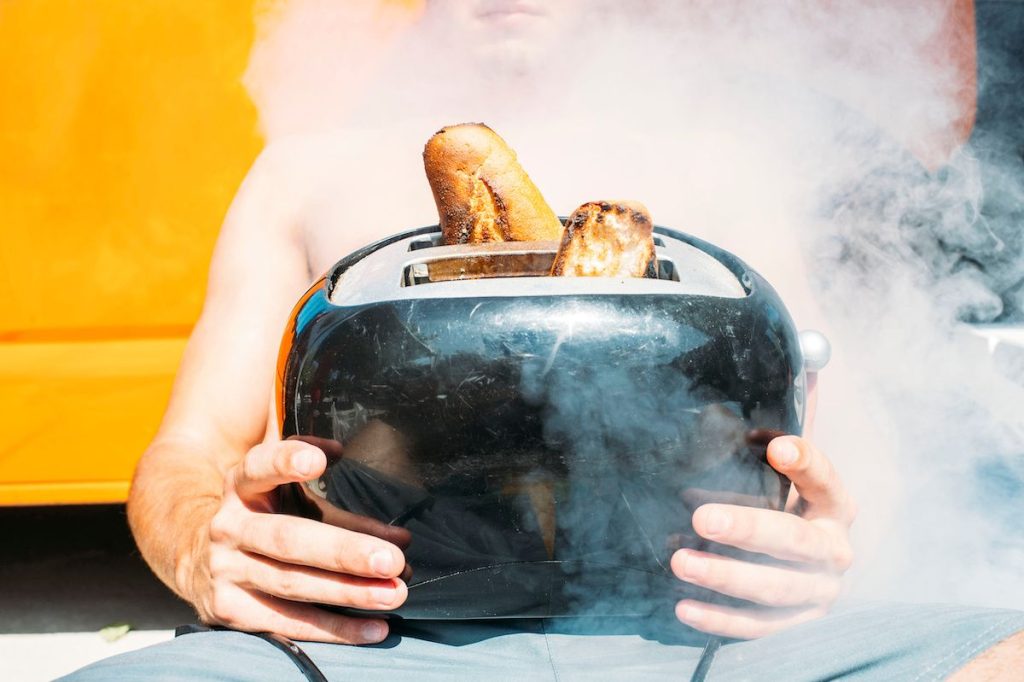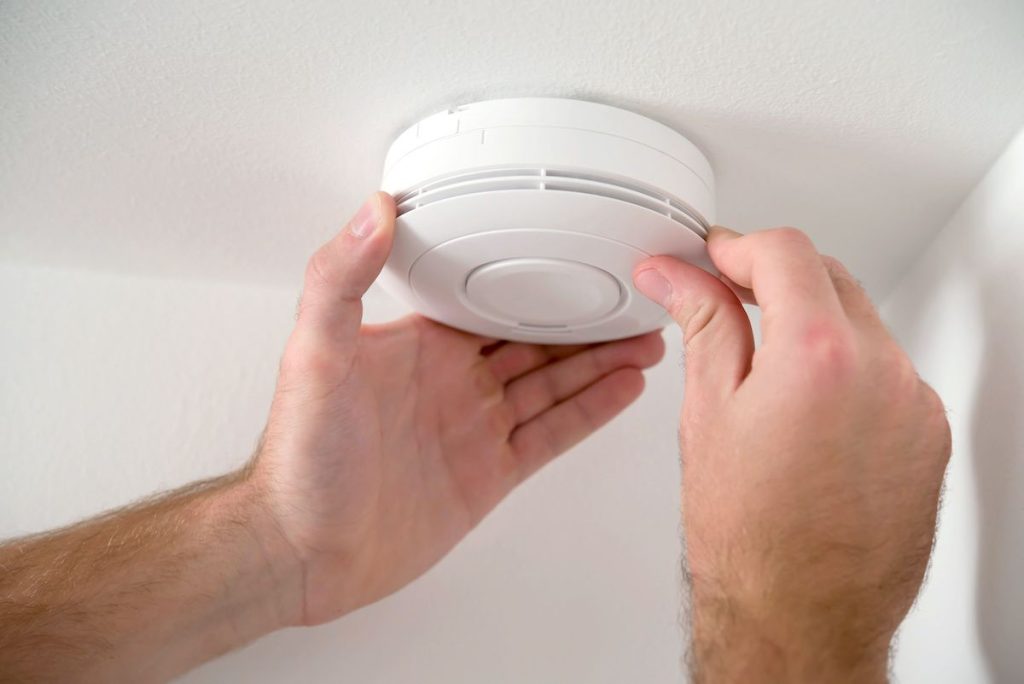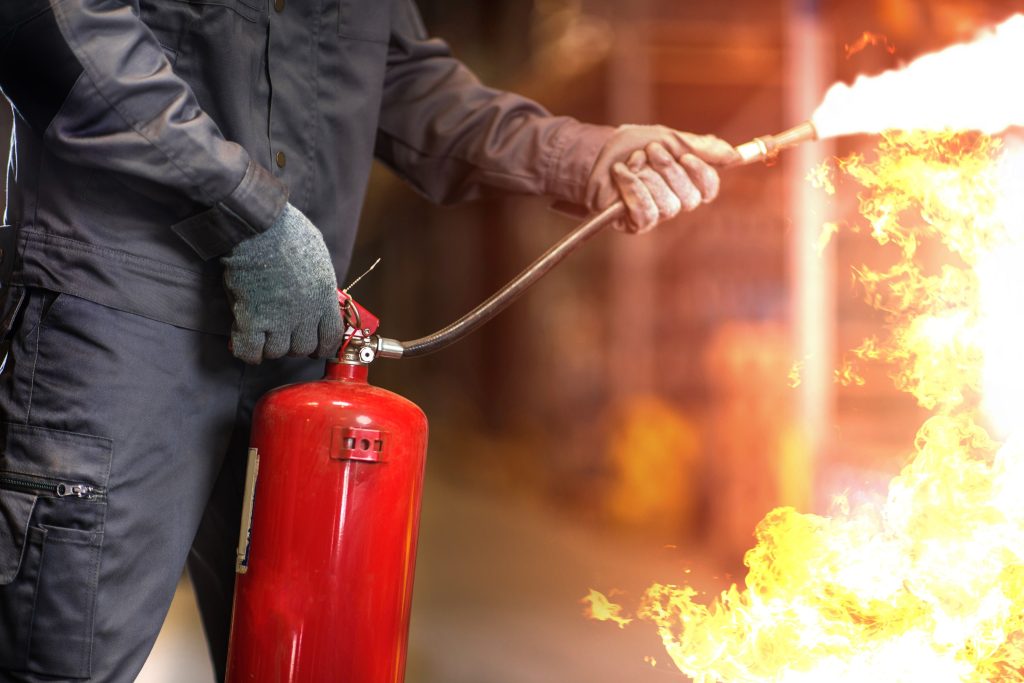Electrical fires can begin as minor incidents, but a small spark can quickly become uncontrollable. The flames may impact other areas of your property, potentially leading to physical injuries. Being aware of the appropriate measures to take during an electrical fire emergency or even taking steps to prevent one altogether can ensure your safety comes first. This blog will explore what causes such fires, fire prevention tips, and how to extinguish an electrical fire.
What Are the Common Causes of Electrical Fires?
Electrical fires are among the most common causes of fire accidents in homes and businesses. These fires can be caused by various factors, ranging from worn wiring to overloaded outlets and faulty appliances.
Electrical Wiring and Outlets
Many electrical fires result from old, damaged, or improperly installed electrical wiring. Over time, wiring can become frayed, cracked, or damaged. Poor wiring can lead to sparks, overheating, and possibly fires. Additionally, electrical outlets overloaded with appliances and devices can cause electrical failure. Plugging too many devices into one outlet can cause overheating, leading to a fire.
Extension Cords
Extension cords are a convenient way to provide power to devices in areas where there are no electrical outlets. However, they can also be a fire hazard. Extension cords can overheat or spark, causing a fire. Additionally, extension cords can be easily damaged, which can expose the wires and cause a short circuit.
Handling Electrical Appliances
Watch the smoke coming out of your toaster! Malfunctioning electrical appliances are another common cause of an electrical fire. When appliances such as dryers, refrigerators, and toaster ovens aren’t working as they should, they can cause fires.

Light Fixtures
Light fixtures can add ambiance to a room. However, if they’re not installed properly or become worn, they’re a fire risk.
Portable Heaters
Portable electric heaters are a great way to stay warm and cozy during winter, but their benefits also come with fire risks. They can overheat, especially if they’re damaged or misused.
Christmas Trees
Nothing signals the end-of-the-year holidays like a Christmas tree! A decorated tree is a wonder to behold, but when things don’t go right, the tree can be a fire hazard. Additionally, a dried-out Christmas tree is highly flammable, making it more susceptible to catching fire from old wiring or an overheated light fixture.
Measures on How to Prevent an Electrical Fire
You can take a few simple steps to prevent electrical fires from occurring.
- Regular maintenance and inspection. One of the most important things to do is to have your electrical system inspected and maintained regularly by a licensed electrician. This is especially important if you live in an older home or last had an inspection a while ago. A professional electrician can identify and fix potential hazards, such as outdated or faulty wiring, loose connections, and overloaded circuits, before they cause a fire.
- Unplug appliances when not in use. Practice unplugging appliances when you’re not using them. Many electrical devices, such as toasters, coffee makers, and portable space heaters, overheat and start a fire if plugged in too long. Unplug these appliances from their outlets and any other electronics when they’re not on to reduce the fire risk.
- Use the correct wattage. Suitable light bulbs and appliances are crucial to preventing electrical fires. Ensure that the wattage of your bulbs and appliances reflects the recommended wattage for your fixtures and electrical outlets. Using a bulb with a wattage that is too high can potentially lead to overheating and a fire.
- Install smoke detectors and carbon monoxide detectors. Smoke and carbon monoxide detectors are essential for detecting fires and gas leaks before they become life-threatening. Install smoke alarms in every bedroom, outside of each sleeping area, and on every level of your home. Consider placing carbon monoxide detectors near every sleeping area and every level of the house, including the basement.

- Avoid overloading outlets. Overloading electrical outlets is a common cause of electrical fires. Avoid using extension cords and power strips to plug in too many appliances or electronics to prevent overloading. Instead, consider having additional outlets installed by a licensed electrician.
- Keep flammable objects away from outlets and appliances. Keep flammable objects such as curtains, blankets, and paper away from electrical outlets, devices, and cords. These objects can easily catch fire if they come into contact with a hot device or overheated line.
- Educate children about electrical safety. Teach children about the do’s and don’ts of electrical safety. Ensure they understand the dangers of playing with electrical outlets and cords and the importance of not touching appliances with wet hands. Instruct them to report any strange hazards they see to an adult and never try to fix electrical problems on their own.
Following these steps can help prevent an electrical fire and ensure you and your family stay safe. However, if one does occur, it’s important to evacuate the building immediately, call 911, and wait for emergency responders to arrive.
How to Put Out an Electrical Fire
In an ideal world, we hope never to encounter a fire, let alone an electrical fire. However, if the situation arises, what do you do? Acting quickly and appropriately to extinguish the flames and avoid injury is critical. Here are some essential steps to put out an electrical fire safely.
- Cut off the power source. The first thing you need to do when you notice an electrical fire is to cut off the power source immediately. Shutting it prevents the fire from spreading and becoming more severe. To do this, locate the electrical panel in your home or building, switch off the circuit breaker, or unplug the appliance. If the fire is in a circuit box, do not attempt to open it. Call for professional help immediately.
- Use a fire extinguisher. Once you have cut off the power source, use a fire extinguisher to extinguish the flames. Ensure you have the correct type for electrical fires, labeled a Class C fire extinguisher. The extinguisher should also be within reach and in working condition. Aim the nozzle at the fire’s base, not the flames, and squeeze the handle to release the extinguishing agent. Use sweeping motions to extinguish the fire fully.
- Cover the flames with a fire blanket. If you don’t have a fire extinguisher or if the fire is small, you can use fire blankets to smother the flames. Place the blanket over the fire and leave it in place for at least 15 minutes to ensure it is entirely out. Avoid removing it before the fire is out, as this may reignite the flames.

- Use baking soda. For small electrical fires, you can use an item found in your pantry: baking soda. Baking soda helps suppress the flames; pouring it on an electrical fire can help douse them. In fact, many fire extinguishers contain certain ingredients found in baking soda. Sprinkle the baking soda liberally over the fire, cover it, and leave it for at least 15 minutes.
- Do not use water. Never use water to put out an electrical fire as it can conduct electricity and make the situation more dangerous. Water may also cause the fire to spread, leading to further damage or injuries. Always use the appropriate extinguishing agents, such as dry chemicals, CO2, or foam.

- Evacuate the area. If the fire is too large or burns out of control, evacuate immediately and call for help. Alert others in the building and move to a safe location, preferably outside. Refrain from attempting to put out a major electrical fire on your own. Please leave it to trained professionals with the proper equipment and expertise to handle the situation safely.
- Call for professional help. After extinguishing the fire, contact a specialized service to inspect the electrical system before resuming use. It may need repairs or replacement, depending on the extent of the damage. A professional electrician can assess the situation and recommend the best action.
Electrical fires are hazardous types of fires and require prompt action to be put out safely. Remember to cut off the power source, cover the flames with a fire blanket, avoid using water, evacuate the area if necessary, and use fire extinguishers. These steps can ensure you and your loved ones are safe and damage to your property is minimal.
Call PuroClean of The Big Island for Your Fire Restoration Needs
The aftermath of a fire can be overwhelming. A lot must be done, but knowing where to start is almost impossible. If you’ve experienced an electrical fire in your home or business, contact PuroClean of The Big Island for emergency services. Our certified technicians will work diligently to restore your property to its pre-loss condition using state-of-the-art equipment and techniques. We provide complete fire remediation services, including smoke damage restoration, soot removal, odor control, and more. With PuroClean of The Big Island, you can rest assured that your property is in good hands. Please visit our website puroclean.com/bigisland or call (808) 460-4400 today.




 PuroClean of The Big Island
PuroClean of The Big Island